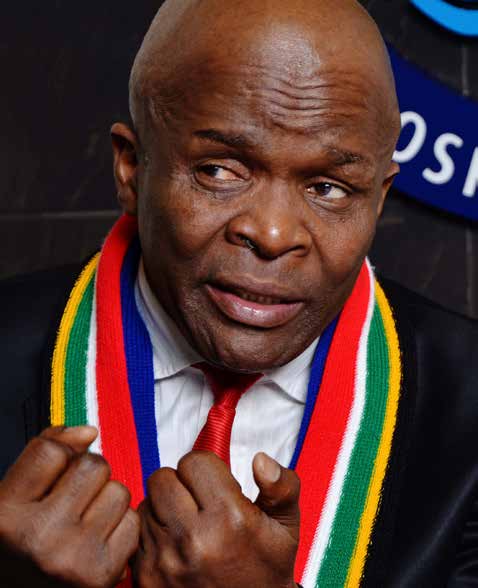Healthy working relationships, clearly defined roles and open and honest communication are among the reasons why the Ekurhuleni Metro received an unqualified opinion with no findings for the 2013/14 financial year.
It was the only metro in Gauteng and one of only two (the other is Cape Town Metro in the Western Cape) in the country to earn unqualified opinions with no findings.
This was revealed in the municipal audit outcomes for the 2013/14 financial year that Auditor-General Kimi Makwetu released recently.
An unqualified opinion with no findings means that the books were in order and that there were no errors on the financial reporting; service delivery targets based on promises were met; and legislation regarding the handling of public funds were complied with.
 Ekurhuleni is a metropolitan municipality that forms the local government of the East Rand region of Gauteng and is home to just over three million people.
Ekurhuleni is a metropolitan municipality that forms the local government of the East Rand region of Gauteng and is home to just over three million people.
Mayor Mondli Gungubele said the municipality worked hard to attain this achievement.
“This is a culmination of the hard work we’ve put in for the past few years.”
Although the municipality received an unqualified opinion with no findings, Mayor Gungubele said there was more work to be done to deliver decent services to the people of Ekurhuleni.
Last year government launched the Back to Basics strategy to improve access to services offered by local government (municipalities) and ensure that municipalities function properly through good governance.
“We know that a clean audit doesn’t necessarily tell you that you are doing the best in terms of service delivery, however, the biggest satisfaction you derive from a clean audit is that you have been given the status of a credible, reliable and trustworthy institution.”
He added that the unqualified opinion with no findings would also help attract investors.
“What it also tells us is that our programme of re-industrialisation can easily secure us investors and cooperation in the industrial sector as we revitalise the manufacturing sector,” he said.
Mayor Gungubele added that the city has programmes aimed at improving the lives of the people of Ekurhuleni and is creating jobs targeting mostly young people from the many townships in the metro.
Communication infrastructure
One of the challenges Mayor Gungubele had to resolve was an understaffed call centre that was supposed to respond to queries from the public. Being understaffed meant that there was a delayed response to queries raised by the community.
“That call centre only had 40 people who had to deal with queries from 3.1 million people. We immediately intervened.”
The municipality improved the call centre by increasing the staff to 200.
“As I’m speaking to you now, we are the leading municipality in terms of response,” said Mayor Gungubele proudly.
Skills development
To address the skills shortage Mayor Gungubele said the municipality had invested R6 million in a programme to train artisans over a three-year period. “This intervention is part of our three-year programme to develop community artisans as part of the Decade of the Artisan campaign.”
He added that 1 200 applicants are being trained at the Indlela Trade Test Centre in Olifantsfontein and will be returned to the Ekurhuleni east and west colleges for top-up training and trade test preparation.
The municipality has also partnered with the Unemployment Insurance Fund (UIF) and the South African Solar Academy to train over 300 young people in the plumbing trade and installation of solar water heating.
The young people were mostly from Daveyton, Benoni, Etwatwa and Watville and were eventually placed with companies for practical training.



 Facebook
Facebook Twitter
Twitter WhatsApp
WhatsApp